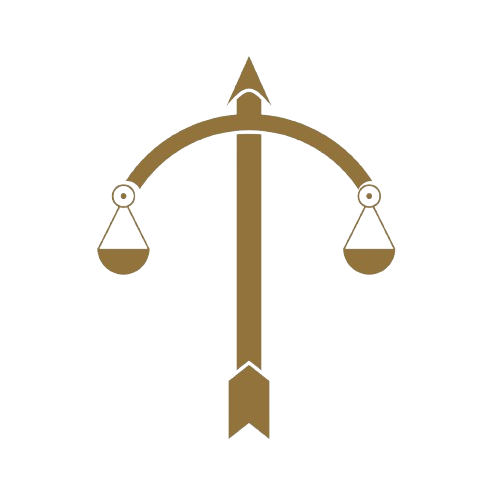When Legal Ambition Meets Reality: The ICJ Case That's Reshaping International Justice
On a grey December morning in 2023, South Africa walked into the International Court of Justice in The Hague with one of the most audacious legal challenges in recent memory.
On a grey December morning in 2023, South Africa walked into the International Court of Justice in The Hague with one of the most audacious legal challenges in recent memory. The country filed an application accusing Israel of violating the Convention on the Prevention and Punishment of the Crime of Genocide in its military operations in Gaza. Nearly two years on, the case continues to reverberate through international law, diplomacy and the court of public opinion.
As a recent analysis in EU Reporter put it, South Africa's application is about to "bump up against reality". The piece argues that whilst the case carries symbolic weight, it faces formidable legal hurdles: proving genocidal intent, navigating jurisdictional thresholds, and confronting the practical limitations of international litigation. For those working in international justice, strategic communications, or global affairs compliance, this case offers a masterclass in how states use international courts not just for adjudication, but for reputation, narrative and normative pressure.
The Legal Architecture: Standing and Jurisdiction
The case is formally registered as Application of the Convention on the Prevention and Punishment of the Crime of Genocide in the Gaza Strip (South Africa v. Israel) (General List No. 192). South Africa's legal strategy invokes Article IX of the Genocide Convention, which allows disputes between contracting parties about the Convention's interpretation or application to be submitted to the ICJ.
What makes this particularly interesting is South Africa's claim of erga omnes partes standing. As legal scholars Alaa Hachem and Professor Oona A. Hathaway explained in Just Security, this doctrine of legal standing "allows a State party to a treaty protecting common legal rights to enforce those rights even if the State is not directly affected by the violation". In other words, South Africa argues it has the right to bring this case on behalf of Palestinians in Gaza, even though South Africa itself is not the direct victim.
Israel, predictably, contests this. The Israeli government argues that no genuine "dispute" exists between the two countries, and that the Court lacks jurisdiction. Israel further maintains that the matter falls outside the Convention's scope entirely, arguing these are questions of war law rather than genocide.
But on 26 January 2024, the ICJ issued an Order on provisional measures that changed the game. The Court found that "at least some of the rights claimed by South Africa are plausible" and that prima facie jurisdiction exists. Whilst this doesn't mean the Court has found Israel guilty of genocide (far from it), it was enough to keep the case alive and trigger a series of interim obligations.
The Genocide Question: Why Intent Matters So Much
At the heart of the matter lies Article II of the Genocide Convention, which defines genocide as acts committed "with intent to destroy, in whole or in part, a national, ethnical, racial or religious group". These acts include killing members of the group, causing serious bodily or mental harm, deliberately inflicting conditions calculated to bring about the group's physical destruction, preventing births, or forcibly transferring children.
The EU Reporter commentary emphasises that proving genocide requires more than showing terrible harm. It requires proving dolus specialis, the special intent to destroy a protected group as such. Israel's declared objective, the analysis notes, is the destruction of Hamas as an armed group and the rescue of hostages, not the destruction of the Palestinian population itself. This distinction is legally crucial.
The provisional measures order from the ICJ illustrates the Court's caution. It did not order a ceasefire. Instead, it required Israel to take all measures within its power to prevent genocidal acts, preserve evidence, allow humanitarian aid, and prevent and punish incitement to genocide. The Court was clear: the plausibility threshold at the interim stage is far lower than the standard for establishing an actual breach. The ICJ has emphatically not found that Israel is committing genocide.
Critics of the case (and there are many) argue that framing this conflict in genocide terms may actually obscure other serious violations of international law, including potential crimes against humanity, war crimes, and breaches of occupation law. There's a risk, as some scholars have noted, of politicising the Genocide Convention itself, diluting its gravity by applying it to situations that, however horrific, may not meet its stringent legal criteria.
The Reality Check: Practical and Political Limits
So what happens now? As the EU Reporter piece underscores, the case confronts some hard realities:
Enforcement is elusive. The ICJ lacks direct enforcement mechanisms. Its orders are binding in law, but actual compliance depends on states' willingness. The interim order issued in January 2024 is legally binding, yet its implementation relies on cooperation from Israel and pressure from the international community. As The Guardian has reported, the gap between legal obligation and practical enforcement remains vast.
Time is not on anyone's side. The merits phase of this case will likely drag on for years. South Africa filed its memorial (over 750 pages of text plus more than 4,000 pages of exhibits) in October 2024. Israel's response, originally due in July 2025, has been extended twice, first to January 2026 and then to March 2026. Meanwhile, conditions on the ground continue to evolve, affecting evidence, context and political dynamics.
The intent bar is extremely high. International case law has deliberately kept the threshold for proving genocidal intent narrow, to preserve the Convention's gravity. Many legal scholars treat this as a feature, not a bug. Proving that Israel's leadership had the specific intent to destroy Palestinians as a group, rather than to achieve military objectives against Hamas, is an extraordinarily difficult evidentiary challenge.
The geopolitics are messy. The case has triggered diplomatic blowback. The United States, for instance, has called South Africa's submission "meritless" and "counterproductive". National Security Council spokesperson John Kirby described it as "completely without any basis in fact whatsoever". At the same time, several countries including Brazil, Ireland, Spain, Belgium, Bolivia, Chile, the Maldives and others have filed declarations to join the case or expressed support. The Hague Group, formed in January 2025 by Bolivia, Colombia, Cuba, Honduras, Malaysia, Namibia, Senegal and South Africa, aims to coordinate enforcement of ICJ provisional measures and International Criminal Court arrest warrants.
What This Means for Organisations and Advisors
For those working in international compliance, strategic communications, due diligence or policy risk, this case offers several lessons:
Strategic litigation is reputational warfare. The South Africa v Israel case is as much about signalling and narrative as it is about legal resolution. Clients operating in or around these issues need to understand that the proceedings form part of a broader ecosystem of accountability, not simply a contained litigation risk. Provisional measures, civil society campaigns, and state interventions can all create reputational and compliance ripples long before any final judgment.
Proxy risks are real. Organisations with operations or exposure in Israel or Palestine, particularly in the arms, defence, or humanitarian sectors, need to consider how interim orders and evolving legal interpretations might affect them. There are growing theories about "complicity" and indirect obligations that could implicate arms suppliers, funders, or corporate partners.
Evidence and thresholds matter. Enthusiasm for treaty based causes must be matched by legal discipline. Proving intent, protected group status, causation, and the nexus between acts and aims requires rigorous evidence. Weak claims risk undermining credibility and can have knock on effects for related advocacy or compliance programmes.
Monitor escalation points. Even if the final judgment is years away, interim orders (such as requirements to allow aid or preserve evidence), third party interventions, and national responses can drive policy changes, sanctions, or regulatory action. These should be treated as early warnings, not distant contingencies.
Conclusion: Symbolism, Substance, and the Long Game
The South Africa v Israel case at the ICJ stands as a watershed moment in the intersection of atrocity law, international adjudication and global politics. The EU Reporter's observation that the case "will crash into reality" doesn't diminish its significance; rather, it highlights how international justice is evolving. Courts like the ICJ are increasingly arenas not just for legal adjudication, but for reputational contest, diplomatic manoeuvring and normative pressure.
For practitioners, the take away is clear: pay attention not only to the final legal outcome, but to the evolving narrative, the compliance spill over effects, and the diplomatic currents that surround this kind of litigation. In a world where law and reputation are increasingly intertwined, cases like this remind us that justice is rarely just about what happens in the courtroom.

